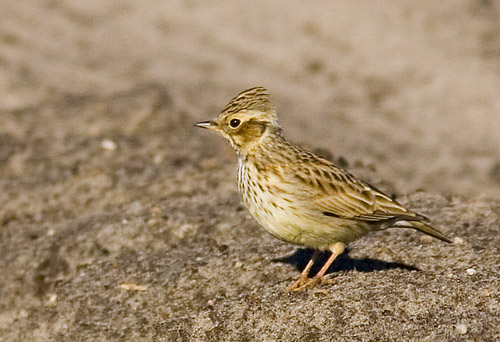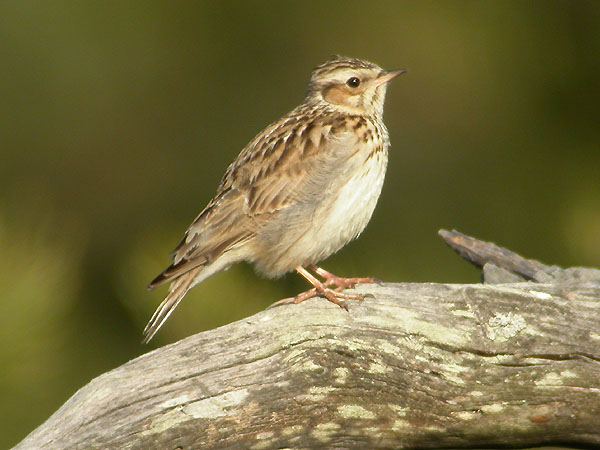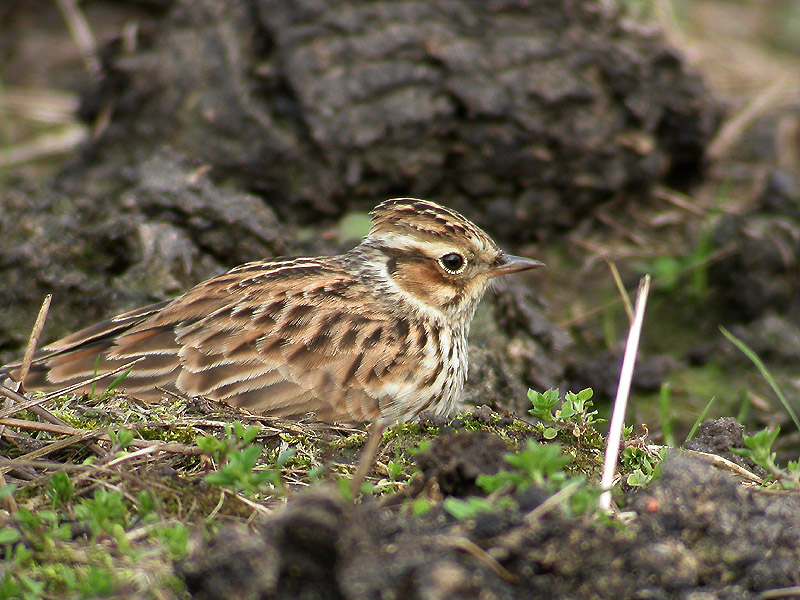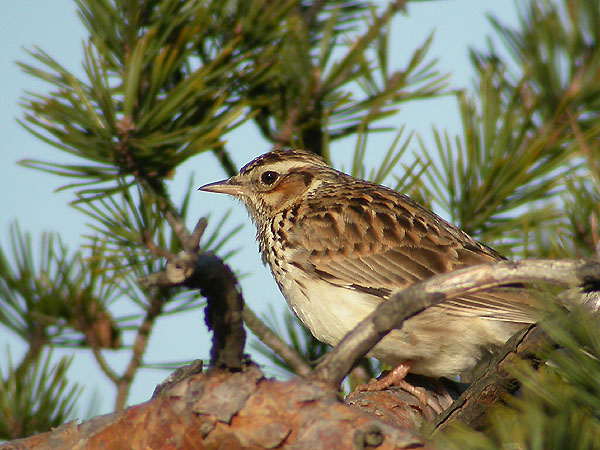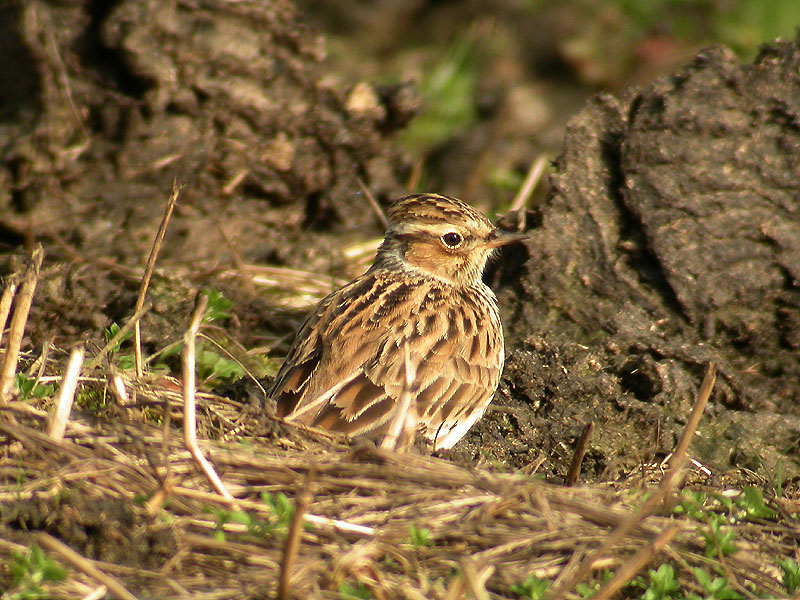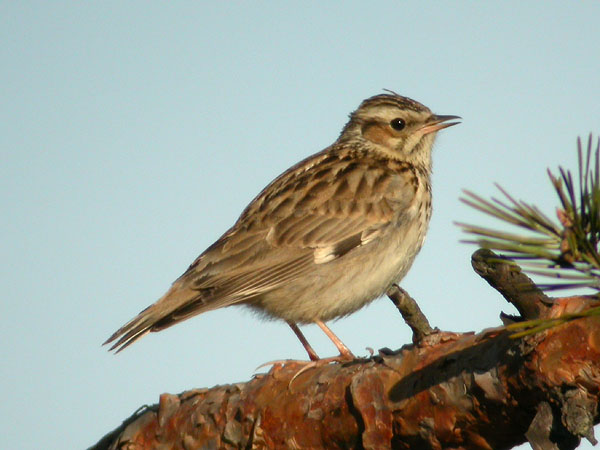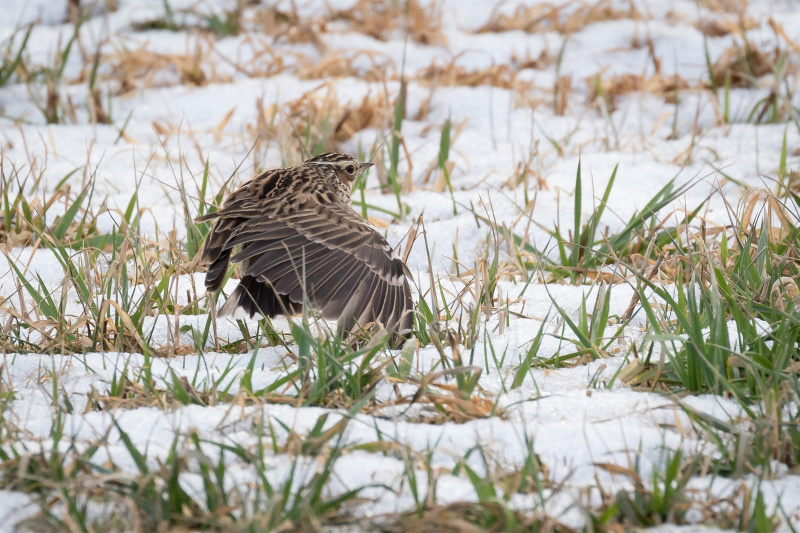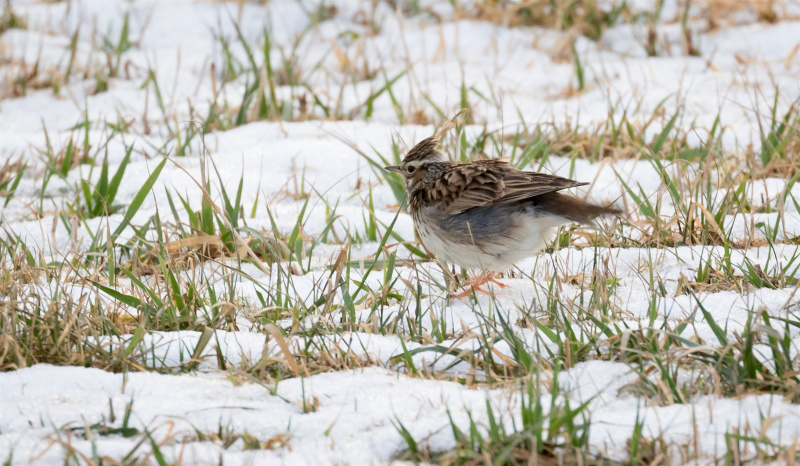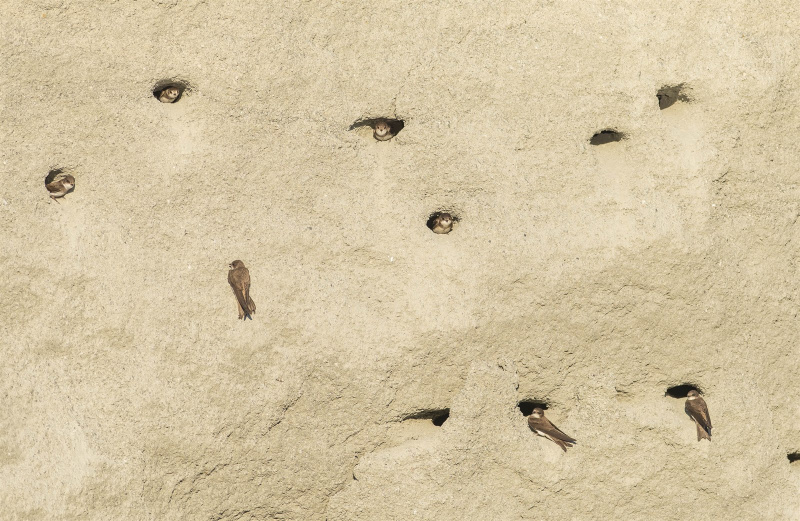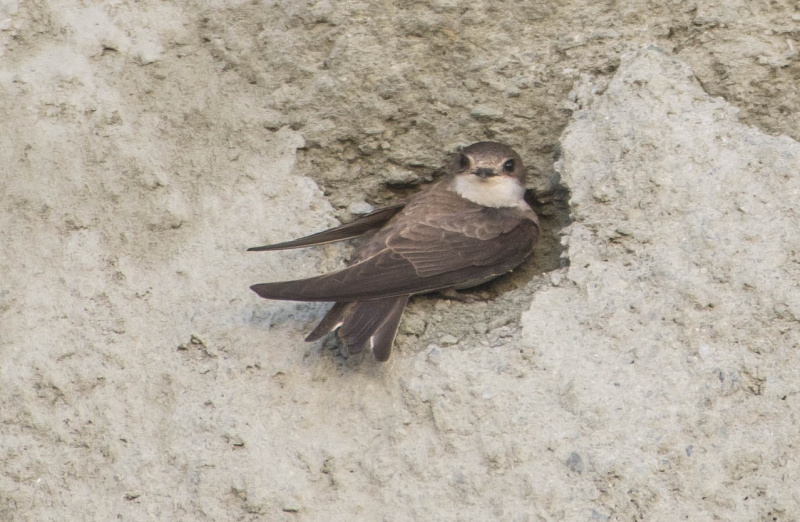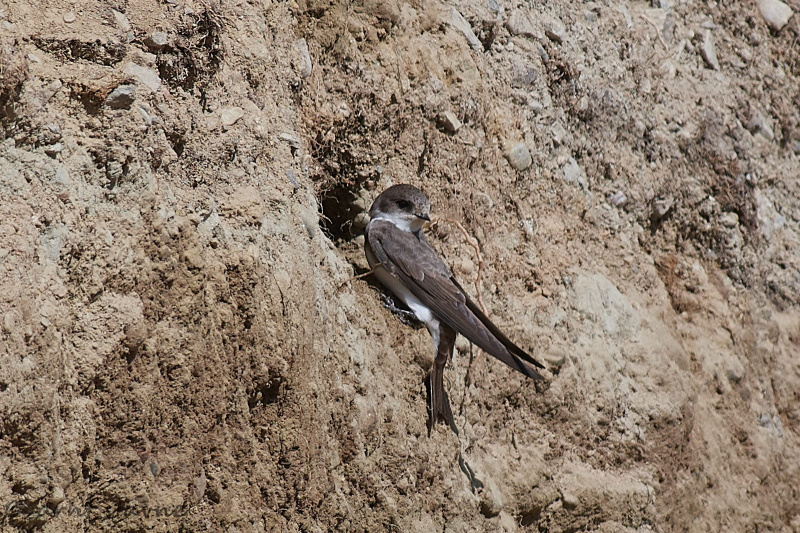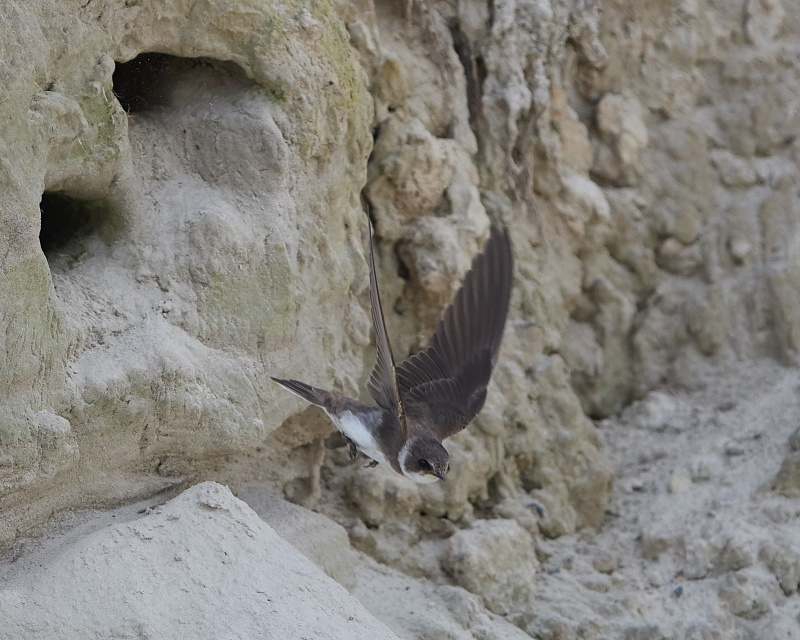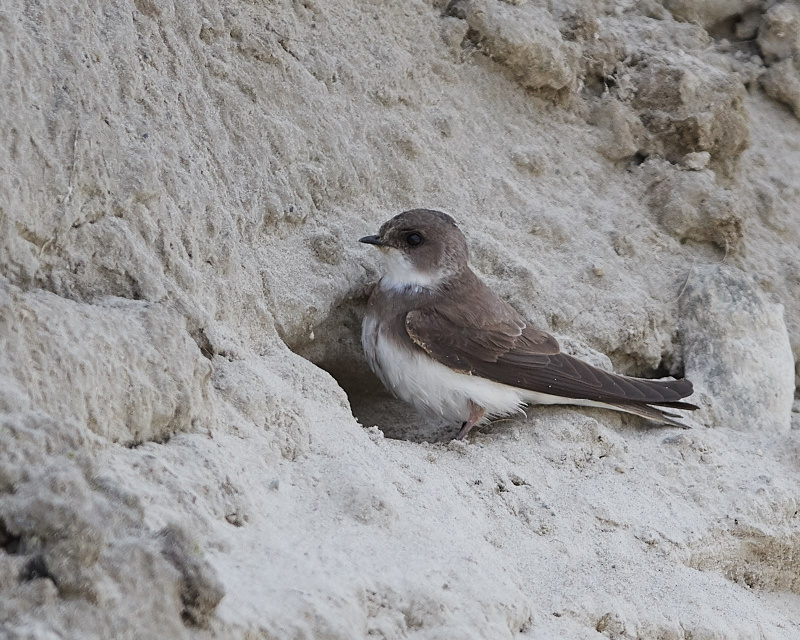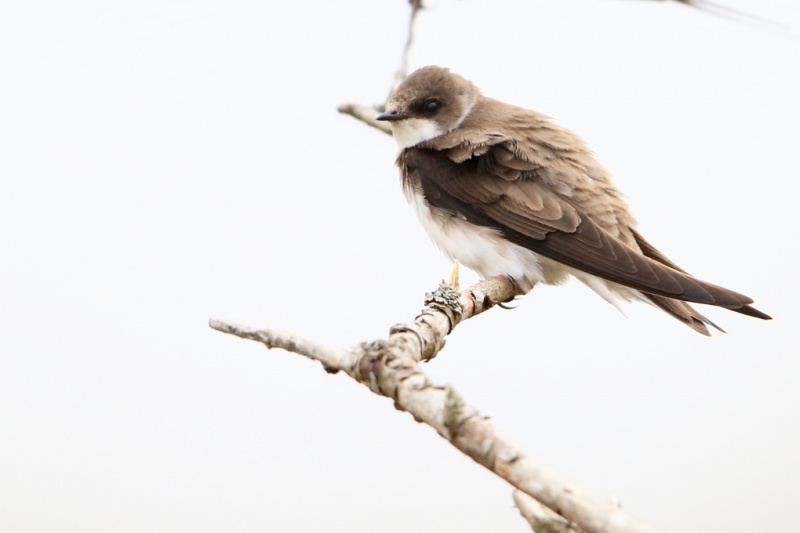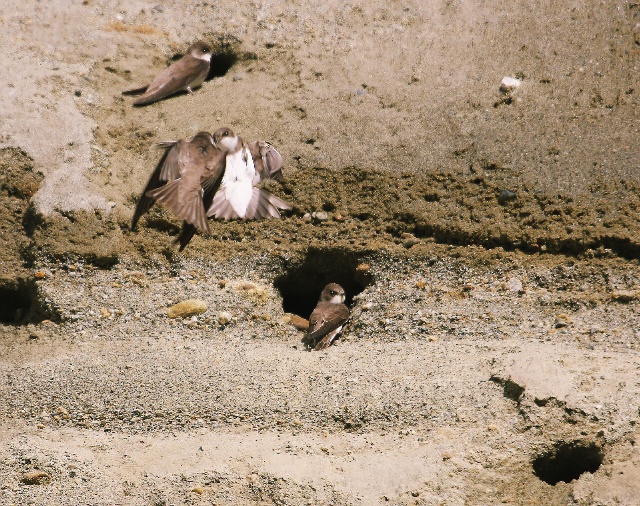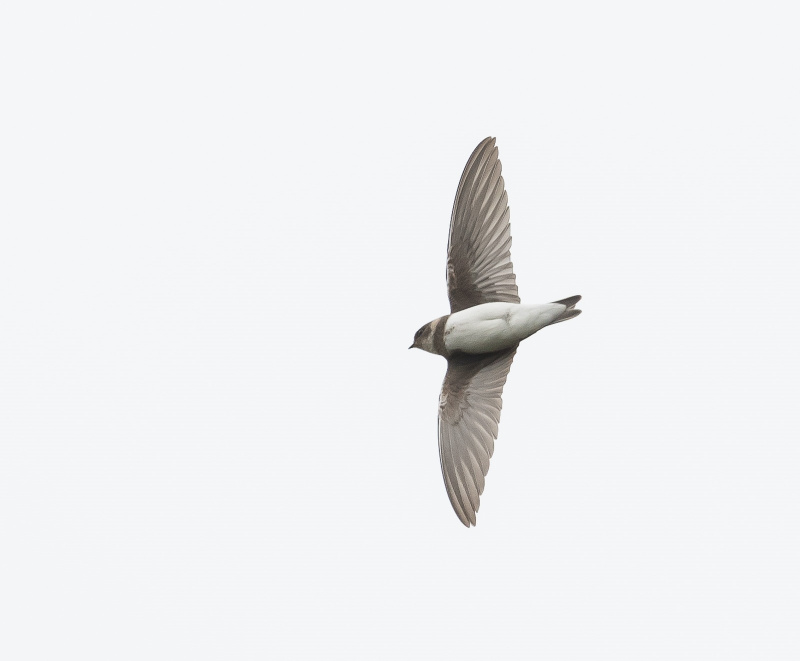Woodlark (Lullula arborea)
Sand Martin (Riparia riparia)
Bill finer than Skylark. Strong white supercilium reaching the neck. Distinctly streaked nape. Wings rounded, and with white edged primary coverts, but no white trailing edge as opposed to Skylark. Tail short and square with white trailing edge. Differs from skylark in posture and behaviour, and appears more erect when perched. Undecisive, bat-like flight.
Sound:Song: Distinct and quite slow for a lark. Consists mainly of varied, disyllabic elements, or single syllables repeated in descending, accelerated phrases. Starting soft and hesitantly, then gaining in strength and speed.
Song:
Distribution:
Xeno-canto: map
Ecology:Birdlife ecology
Links:
Observation.org Latest observations
Image search Flickr NB! May give other species
CCSmall martin with dark brown chest-band and white throat. Upperparts dark brown, underparts white. Underside of wings dark. Juveniles with light fringes to brown feathers, and buff throat. Flight more elegant than Barn Swallow and House Martin. Often changes direction but keeps altitude. More fluttering flight than House Martin, with less gliding.
Sound:Contact call a mono- or disyllabic "trrrrt". Similar to House Martin but more raucous and less crisp, with less rolling r's, and with stable pitch throughout. Song a primitive improvisation on the contact call. Alarm call similar to House Martin; a sharp plaintive "tseep", but somewhat purer and more drawn.
Contact call:
Distribution:
Wikipedia: map (se also Xeno-canto below)
Ecology:Birdlife ecology
Links:
Observation.org Latest observations
Image search Flickr NB! May give other species
CC
 English
English Albanian
Albanian
 Armenian
Armenian
 Bulgarian
Bulgarian
 Catalan
Catalan
 Croatian
Croatian
 Czech
Czech
 Danish
Danish
 Dutch
Dutch
 Finnish
Finnish
 French
French
 Georgian
Georgian
 German
German
 Greek
Greek
 Hungarian
Hungarian
 Italian
Italian
 Latvian
Latvian
 Lithuanian
Lithuanian
 Macedonian
Macedonian
 Norwegian
Norwegian
 Polish
Polish
 Portuguese
Portuguese
 Romanian
Romanian
 Russian
Russian
 Sami : Lule sami
Sami : Lule sami
 Sami : North sami
Sami : North sami
 Sami : South sami
Sami : South sami
 Scientific names
Scientific names
 Serbian
Serbian
 Spanish
Spanish
 Swedish
Swedish
 Ukrainian
Ukrainian


